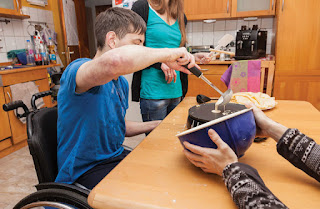Who is eligible to receive PCA services?
In Massachusetts, the Personal Care Assistant (PCA) program is a lifeline for individuals with disabilities or chronic illnesses who need assistance with daily activities. By offering personalized care in the comfort of their homes, PCA services empower eligible individuals to maintain their independence and enhance their overall quality of life.
Understanding the eligibility requirements is essential for individuals and their families seeking PCA services in Massachusetts. To begin the eligibility assessment process and explore available support options, it is recommended to contact designated agencies or organizations. This article aims to clearly understand the eligibility criteria for receiving PCA services in Massachusetts.
Medical Necessity and Functional Limitations
To be considered eligible for PCA services in Massachusetts, individuals must demonstrate medical necessity and have functional limitations that hinder their ability to perform daily activities. These activities include essential tasks like bathing, dressing, eating, toileting, transferring, mobility, and additional instrumental activities such as meal preparation, medication management, transportation, and light housekeeping.
The eligibility process involves a comprehensive assessment conducted by designated agencies or organizations. This evaluation considers an individual's medical condition, functional limitations, and the assistance required to perform daily tasks. Providing thorough documentation and medical evidence that supports the need for PCA services is crucial during this assessment.
MassHealth and Medicaid Eligibility
The PCA program in Massachusetts primarily relies on funding from MassHealth, the state's Medicaid program. Consequently, eligibility for PCA services is closely linked to the MassHealth eligibility criteria. Qualifying for MassHealth requires meeting specific income and asset limits based on household size and circumstances. These thresholds may vary depending on the specific MassHealth program, such as MassHealth Standard, MassHealth CommonHealth, or MassHealth for Seniors and People with Disabilities.
In addition to meeting the financial eligibility criteria, individuals must be residents of Massachusetts and either U.S. citizens or eligible immigrants. It's important to note that individuals receiving Supplemental Security Income (SSI) or those qualifying for MassHealth through SSI-related categories are automatically eligible for PCA services.
Adults with Disabilities and Chronic Illnesses
The PCA program in Massachusetts primarily serves adults with disabilities and chronic illnesses who require assistance with daily activities due to physical, cognitive, or mental health impairments. This includes individuals with conditions such as spinal cord injuries, muscular dystrophy, multiple sclerosis, cerebral palsy, traumatic brain injury, and various other disabling conditions.
To be eligible for PCA services, individuals must have a stable condition requiring ongoing assistance with daily activities. The severity of the disability or chronic illness and the individual's ability to perform these activities safely without assistance are considered during the eligibility assessment.
Children with Disabilities
Children with disabilities may also qualify for PCA services if they meet the necessary criteria and require ongoing assistance with daily activities. In such cases, the eligibility determination considers the child's specific needs and circumstances, as well as the family's situation.
The assessment process for children often involves a comprehensive evaluation conducted by healthcare professionals specializing in pediatric care. They assess the child's functional limitations, medical condition, and impact on their daily lives to determine the level of assistance required.
Consumer Direction and Self-Determination
A distinctive feature of the PCA program in Massachusetts is consumer direction, which allows eligible individuals to have control over their care. Consumer direction empowers individuals to hire, train, and manage personal care attendants. This level of control enables individuals to choose caregivers who best meet their needs and preferences, ensuring a person-centered approach to care.
By having consumer direction, individuals actively participate in the decision-making process regarding their care. They can select caregivers they feel comfortable with and possess the necessary skills to assist them effectively. This level of control and self-determination enhances the overall quality of the PCA services received.
Conclusion
The Personal Care Assistant (PCA) program in Massachusetts offers vital support to individuals with disabilities and chronic illnesses, providing personalized care within the comfort of their homes. Eligibility for PCA services is based on medical necessity, functional limitations, MassHealth eligibility, and specific criteria for the individual's condition and circumstances.
Discover the difference NILP can make in your life or the life of a loved one. Their dedicated team of professionals is ready to assist you in accessing resources, advocacy, peer support, and skill-building opportunities tailored to your unique needs and goals. Don't let disabilities limit your potential. Contact NILP today to learn more about their programs and services. Visit their website to connect with their knowledgeable staff and start your journey towards greater independence and inclusion. Trust NILP to be your partner in overcoming barriers and embracing a life of empowerment.
.jpg)


Comments
Post a Comment